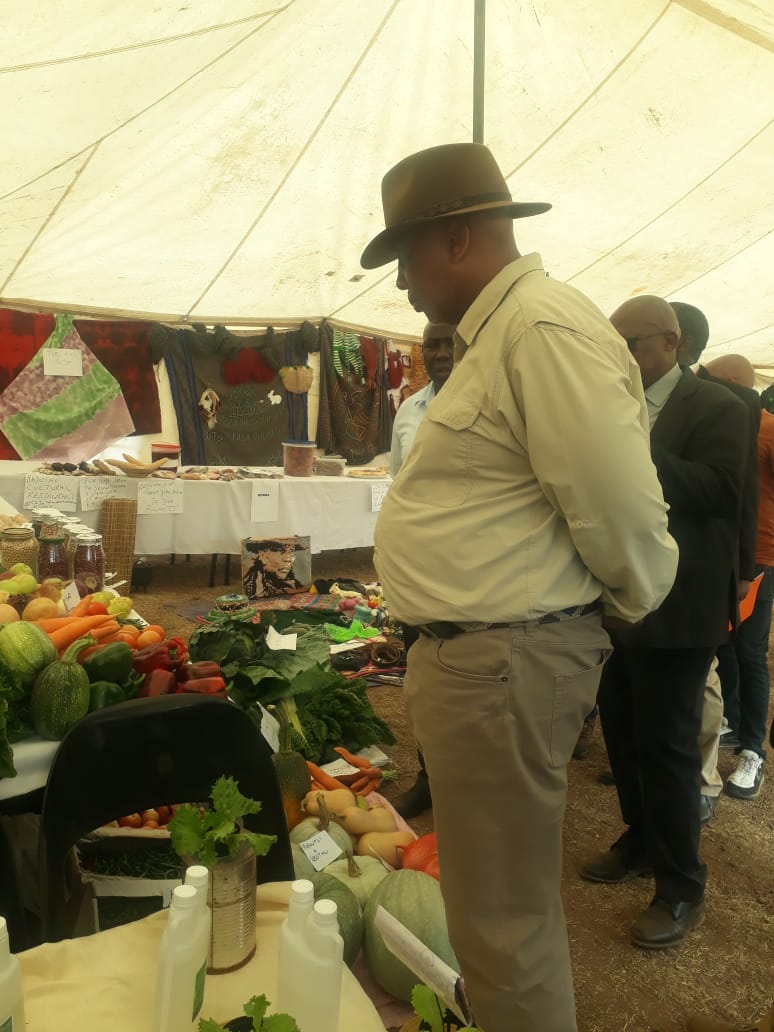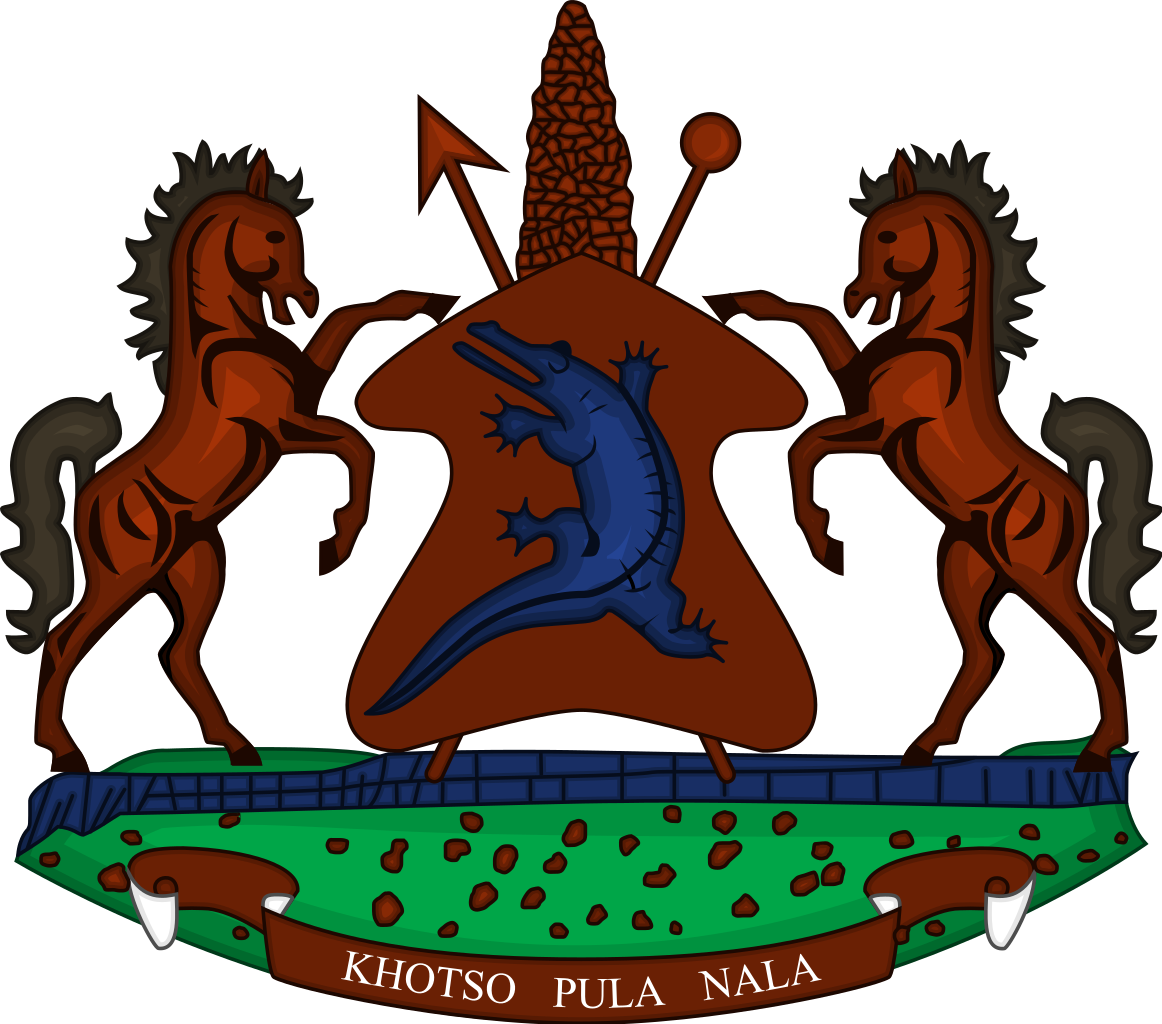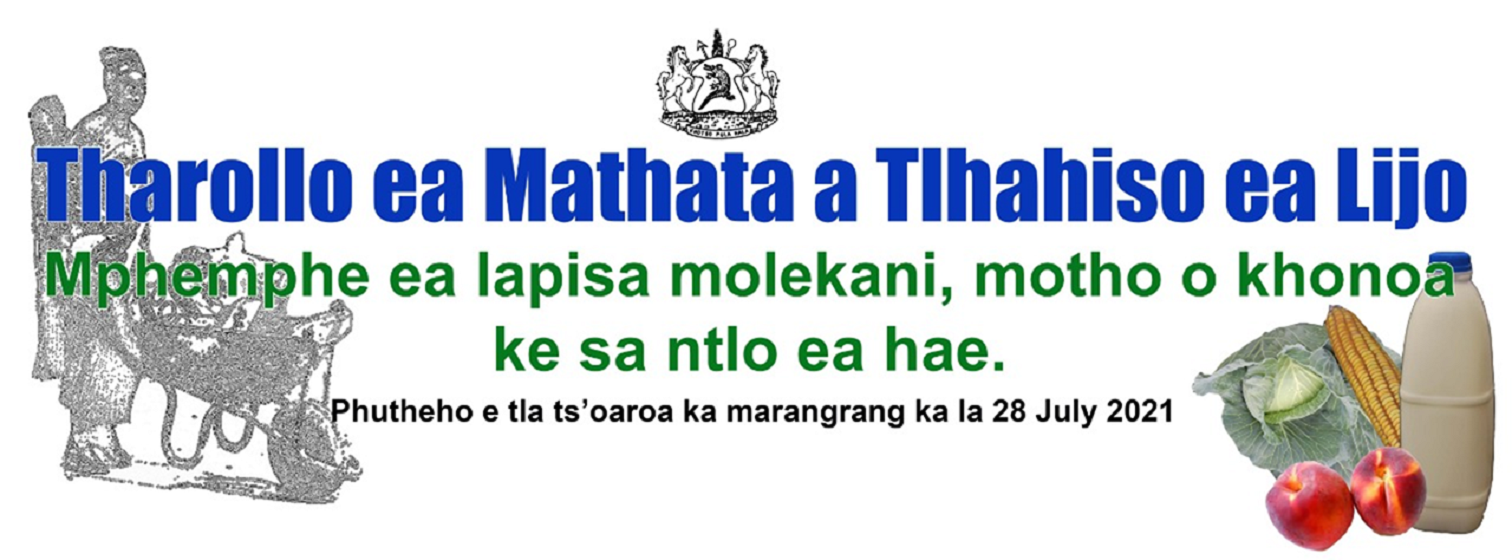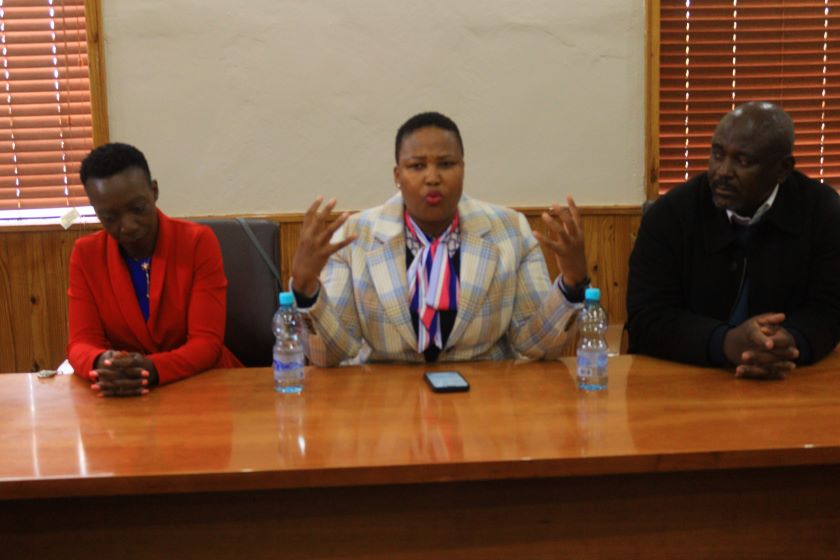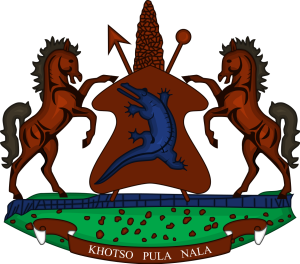Climate change has been identified as a key factor in food shortage in the country during the National Food Systems Dialogue held in Maseru.
The Deputy Principal Secretary, Mr. Johane Masia said climate change is the reason the country is faced with poverty and food shortage, saying climate change has affected crop production in the country. Mr. Masia said the country is experiencing extreme weather changes such as drought, heavy rains and storms which have threatened crop production in this country, saying production of stable food has declined.
Another challenge that threatens food security is crime, which is said to have manifested in daily activities hence been a concern to farmers and communities as they said stock theft impact adversely in food production.
Frequent changes of ministers and relevant decision-makers influence changes of policies within a short time hence make it difficult for the country to have sustainable production, saying some subsidies such as fertiliser do not reach farmers on time and this affects food production.
However, Mr. Masia said to realise massive production the country needs crop insurance for smallholders, adding that having knowledge on Agric-business is key to food security in this country.
He commented that the National Food Systems Dialogue came at the right time when the country needs monitoring and evaluation on what should best be done and keep the consistency.
Presenting his views, an expert in meteorology, Dr Sekoli Sekoli said there is a need for Basotho to understand the vulnerability of the county in issues relating to climate change, saying this will enable the country to tackle the issue of climate change thus leading to sustainable agriculture production.
Dr Sekoli said climate change invites new approaches to solve problems around socio-economic development and sustenance of life change, adding that the country needs to adapt to changes brought by climate change.
He stressed that it is important for the country to maximise the productivity of food and maintenance of nutrition levels under these circumstances.
In conclusion, Dr Sekoli said Lesotho’s high altitude and low humility give her an advantage in agriculture adventures to secure food sustainability and economic growth, noting that Lesotho has potential in the production of cannabis.
Moreover, regular training for farmers regarding new farming systems has been identified by farmers as key to food sustainability and inclusive food systems in the country.
Mrs. Mantoetse Rantoa who is a farmer noted that they have learned that developed countries have shifted to new advanced farming systems hence their ability to achieve sustainable and inclusive food systems.
She stressed that agriculture remains the main factor that can help the nation to attain food security and economic growth.
This was the first national dialogue held before United Nations Food Summit in September in New York.
By Staff Reporter: Noliwe Velaphe
